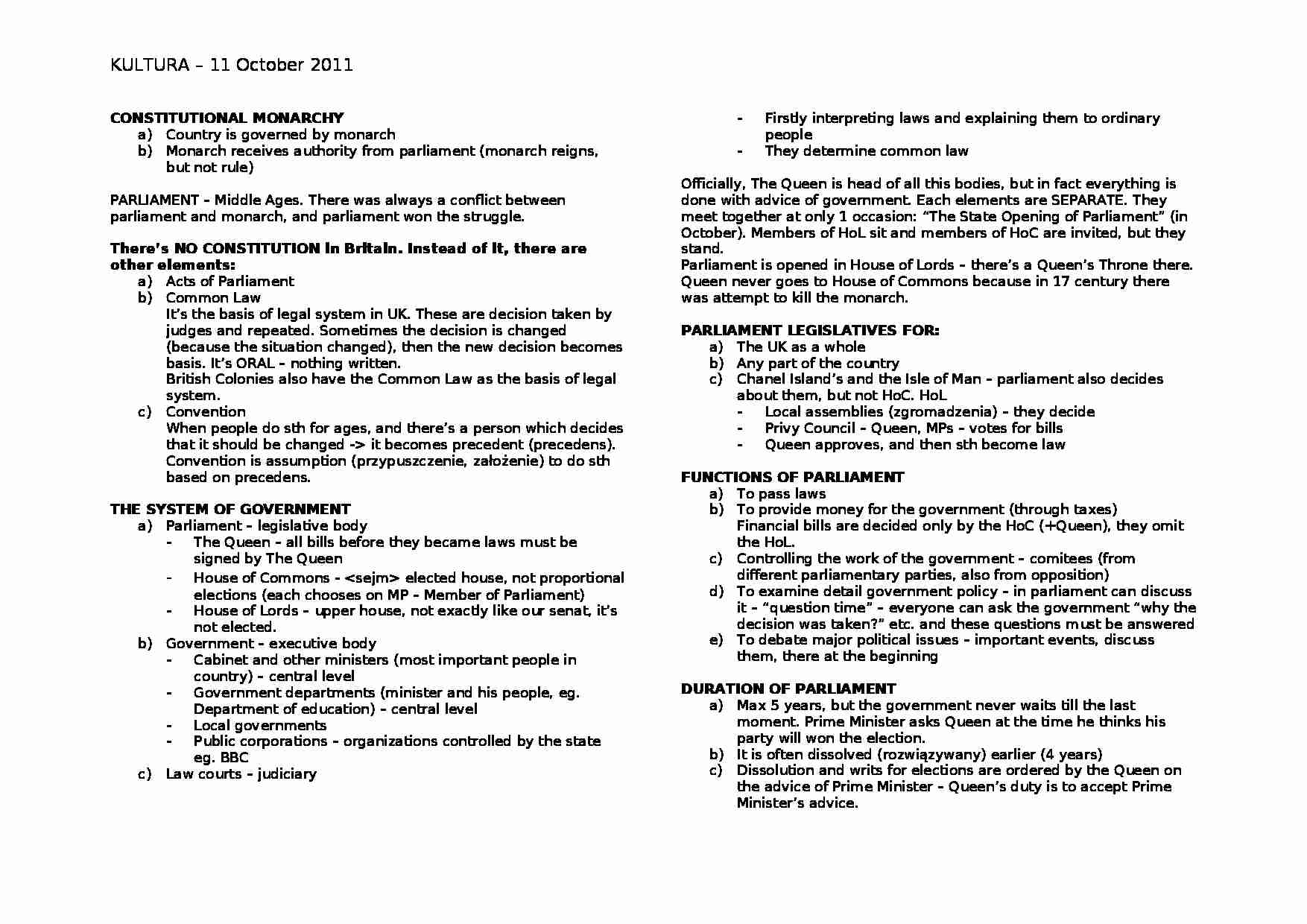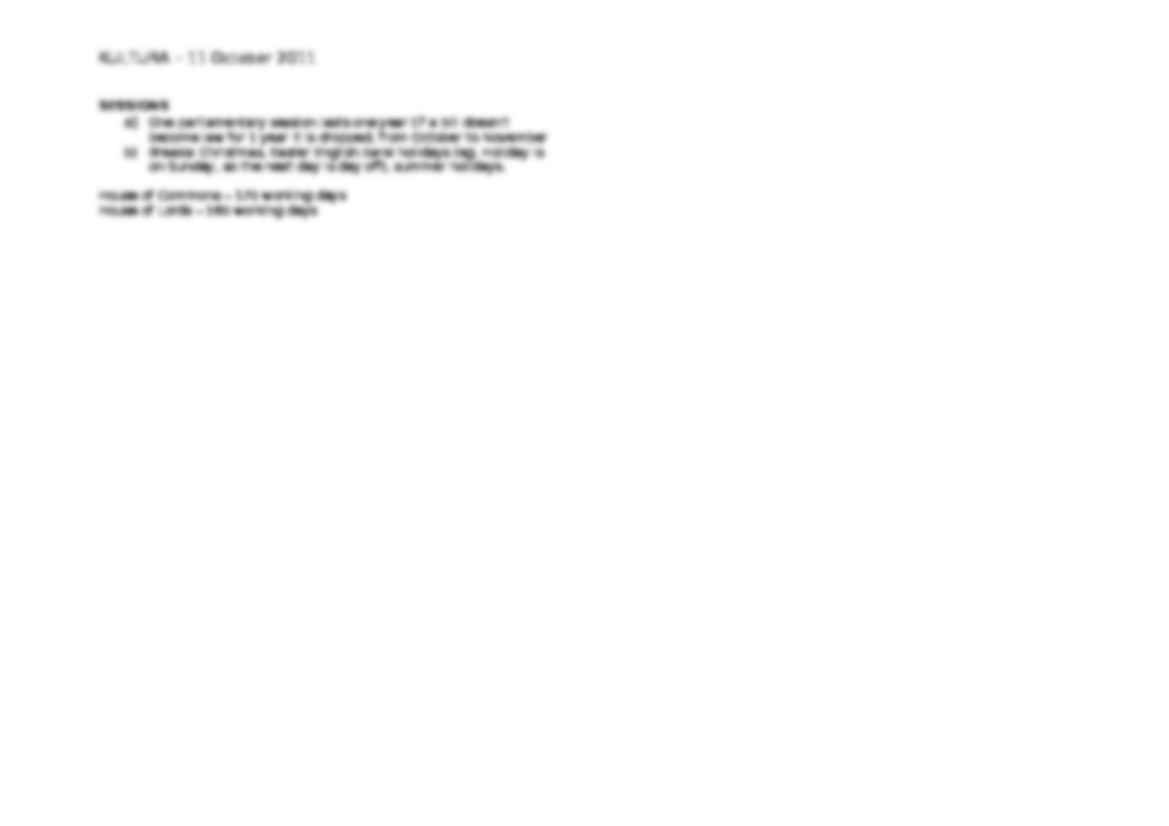To tylko jedna z 2 stron tej notatki. Zaloguj się aby zobaczyć ten dokument.
Zobacz
całą notatkę


CONSTITUTIONAL MONARCHY
Country is governed by monarch
Monarch receives authority from parliament (monarch reigns, but not rule)
PARLIAMENT - Middle Ages. There was always a conflict between parliament and monarch, and parliament won the struggle.
There's NO CONSTITUTION in Britain. Instead of it, there are other elements:
Acts of Parliament
Common Law
It's the basis of legal system in UK. These are decision taken by judges and repeated. Sometimes the decision is changed (because the situation changed), then the new decision becomes basis. It's ORAL - nothing written.
British Colonies also have the Common Law as the basis of legal system.
Convention
When people do sth for ages, and there's a person which decides that it should be changed - it becomes precedent (precedens). Convention is assumption (przypuszczenie, założenie) to do sth based on precedens.
THE SYSTEM OF GOVERNMENT
Parliament - legislative body
The Queen - all bills before they became laws must be signed by The Queen
House of Commons - elected house, not proportional elections (each chooses on MP - Member of Parliament)
House of Lords - upper house, not exactly like our senat, it's not elected.
Government - executive body
Cabinet and other ministers (most important people in country) - central level
Government departments (minister and his people, eg. Department of education) - central level
Local governments
Public corporations - organizations controlled by the state eg. BBC
Law courts - judiciary
Firstly interpreting laws and explaining them to ordinary people
They determine common law
Officially, The Queen is head of all this bodies, but in fact everything is done with advice of government. Each elements are SEPARATE. They meet together at only 1 occasion: “The State Opening of Parliament” (in October). Members of HoL sit and members of HoC are invited, but they stand.
Parliament is opened in House of Lords - there's a Queen's Throne there. Queen never goes to House of Commons because in 17 century there was attempt to kill the monarch.
PARLIAMENT LEGISLATIVES FOR:
The UK as a whole
Any part of the country Chanel Island's and the Isle of Man - parliament also decides about them, but not HoC. HoL
Local assemblies (zgromadzenia) - they decide
Privy Council - Queen, MPs - votes for bills
Queen approves, and then sth become law
FUNCTIONS OF PARLIAMENT
To pass laws
To provide money for the government (through taxes)
(…)
… to accept Prime Minister's advice.
SESSIONS One parliamentary session lasts one year (if a bill doesn't become law for 1 year it is dropped, from October to November
Breaks: Christmas, Easter English bank holidays (eg. Holiday is on Sunday, so the next day is day off), summer holidays.
House of Commons - 170 working days
House of Lords - 160 working days
KULTURA - 11 October 2011
…
... zobacz całą notatkę




Komentarze użytkowników (0)